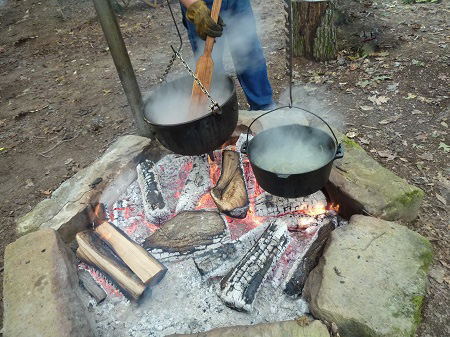Right Off the Bat
 When a batter hits a ball, that ball flies right off the bat. While the ball soars through the air, the batter runs toward first base without delay.
When a batter hits a ball, that ball flies right off the bat. While the ball soars through the air, the batter runs toward first base without delay.
Right off the bat means immediately.
We don’t hesitate. Instead, we act:
- Instantly
- First thing
Rather than sit and ponder the possibilities, we move almost spontaneously.
We value first responders who act right off the bat.
Their speed often makes the difference in life and death.
- Fire fighters
- Law enforcement
- Medical personnel
We don’t want precise workers to act right off the bat.
Their speed results in costly errors or conclusions.
- Scientists
- Accountants
- Builders
For them, haste makes waste. If we demand their work immediately if not sooner, we suffer in the end.
May we always choose wisely between patience and speed.
Much in life is worth the wait. Yet, we never want to postpone decisions that require an immediate response.
Without delay [Jesus] called them, and they … followed him (Mark 1:20 NIV).
Thanks to Darrin Jenkins for the suggestion and to Richard Robards for the photo.
Do you have an expression you want explained or a thought about this one? If so, please comment below.
Subscribe to receive my weekly posts by email and receive a free copy of “Words of Hope for Days that Hurt.”
If you enjoyed this post, please share it with your friends.


 Our family had horses when I was a teenager. I loved to ride, but my sister preferred to keep both feet on the ground. She did not trust horses, especially when they chomped at the bit.
Our family had horses when I was a teenager. I loved to ride, but my sister preferred to keep both feet on the ground. She did not trust horses, especially when they chomped at the bit. “Stay right there. I’ll be back in a jiffy.” I wonder how many parents have said that to a child. Or how many spouses have said that to one another. They don’t want the person to move. They will return quickly
“Stay right there. I’ll be back in a jiffy.” I wonder how many parents have said that to a child. Or how many spouses have said that to one another. They don’t want the person to move. They will return quickly Patience is not my greatest strength. Most of the time, I want everything done immediately, if not sooner. I want it done now, but I wish it were already done.
Patience is not my greatest strength. Most of the time, I want everything done immediately, if not sooner. I want it done now, but I wish it were already done. We often let the smallest problem bother us most.
We often let the smallest problem bother us most.

